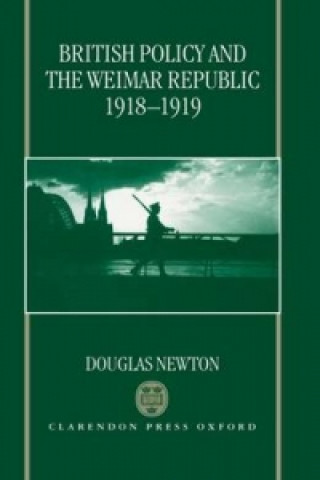
Livrare
Consilier de cumpărături





Nu se pretează? Nu contează! La noi puteți returna bunurile în 30 de zile
 Voucher cadou
orice valoare
Voucher cadou
orice valoare
Cu un voucher cadou nu veți da greș. În schimbul voucherului, destinatarul își poate alege orice din oferta noastră.
British Policy and the Weimar Republic, 1918-1919
 engleză
engleză
 235 b
235 b
30 de zile pentru retur bunuri
Ar putea de asemenea, să te intereseze


This book explores the making of British policy toward Germany in the aftermath of its defeat in the Great War. Douglas Newton shows how British pressures on Germany during the formative months of the new republic were crucial in debilitating the German Revolution and the faltering Weimar democracy. Using a vast array of private papers, Dr Newton reveals the inner workings of British policy-making: the long-standing reluctance to make any commitment to German democratization; the overwhelmingly hostile response to the socialist-led German Revolution; the shunning and starvation of the new socialist government; the support for the resuscitation of a degree of militarism to deal with 'Bolshevism' inside Germany; and the battle to achieve the only real concession made to Germany - the minor relaxation of the economic blockade, in March 1919, to allow emergency food relief. British policy towards the 'new Germany' was forged in an atmosphere of great tension. The 'moderates', especially strong in the intelligence services, who recommended policies of reconciliation, faced powerful ultra-patriotic and economic pressure groups, supported by the popular press who had long insisted upon a policy of aggrandizement in order to smother anticipated unrest in post-war Britain. Britain's decision-makers vacillated for months. With many misgivings, they eventually opted for a 'harsh' treaty, in spite of an emerging consensus among the intelligence 'experts' in favour of a moderate peace to consolidate Germany's transition to democracy. Douglas Newton shows how domestic political priorities triumphed over expert opinion, with ominous consequences for the fate of German democracy and for the rest of Europe.
Informații despre carte
 engleză
engleză
Categorii




 Cum să cumpăr
Cum să cumpăr




















